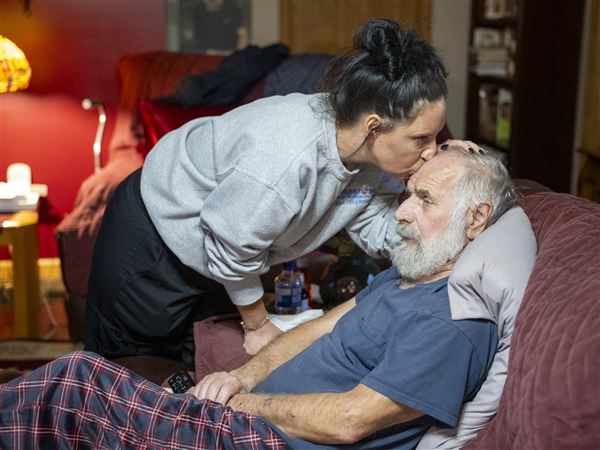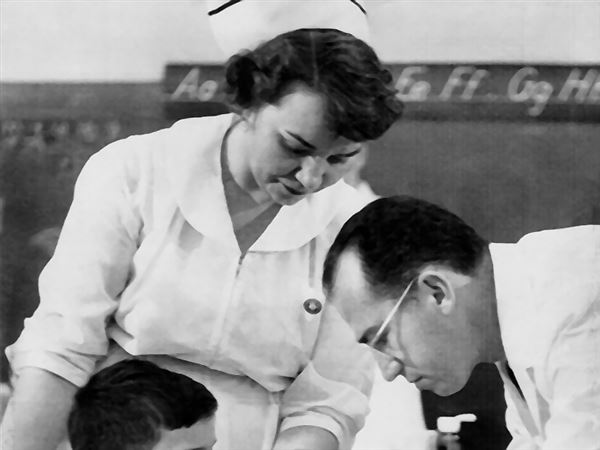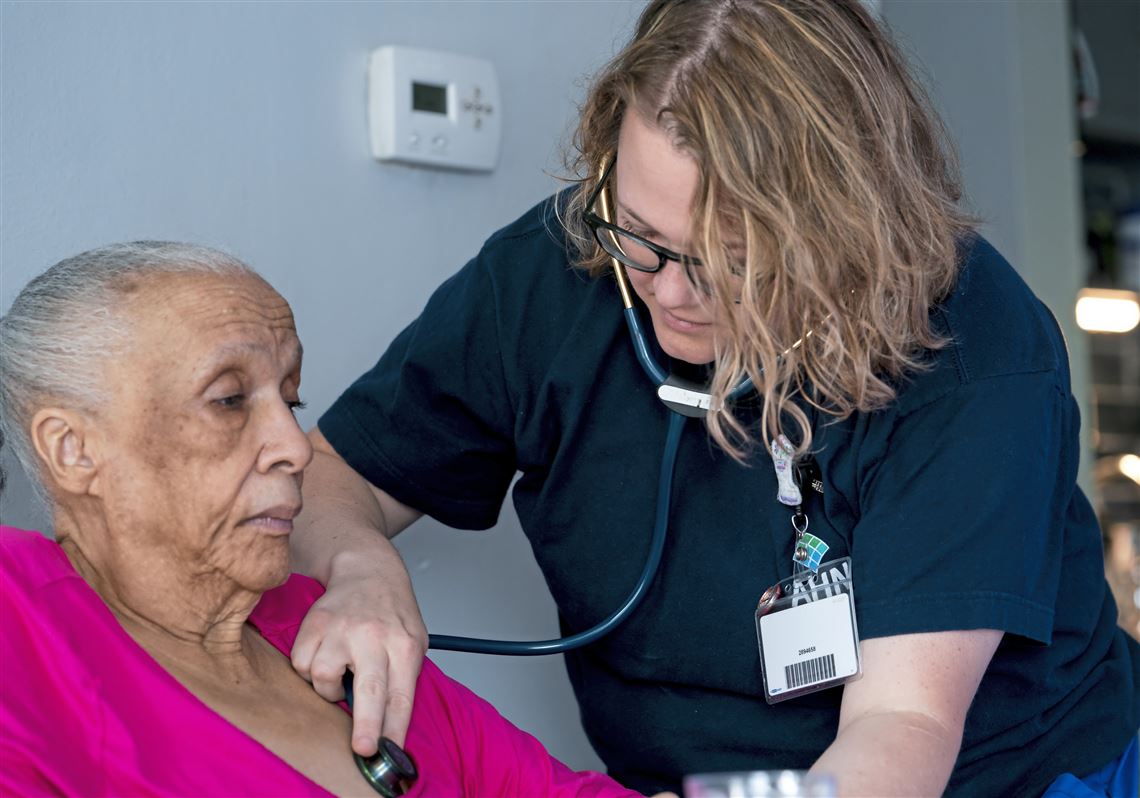Imagine having a medically-fragile child with physical disabilities who needs skilled in-home nursing care to live at home, attend school, and enjoy a childhood similar to their peers.
In Pennsylvania, 13,000 medically-fragile children and adults prefer to receive care at home rather than in costlier hospitals and institutions. But while the state funds care for people with similar needs, they’re left out.
Work and advocacy
The reality for parents in this situation across Pennsylvania is alarming: They must work to support their families while tirelessly advocating to ensure that they receive the essential nursing care needed to keep them at home rather than in an institution. This is a problem we see as people who work in health care and advocate for our clients.
Thousands of Pennsylvanians face difficulties accessing skilled in-home care for their children because most nurses in the state can earn more working in hospitals and nursing homes. Many nurses can also earn higher wages through other in-home care programs (caring for those with developmental rather than physical disabilities) or by working in neighboring states.
This disparity feels unfair because it is.
In Pennsylvania, Gov. Josh Shapiro and the legislature increased funding in the budget for healthcare services delivered in nursing homes and homecare for individuals with developmental disabilities. However, he and the legislature once again overlooked those living with physical disabilities.
Consequently, the lowest wage a nurse can earn in Pennsylvania is by caring for residents with physical disabilities in their own homes. Every other kind of care pays better wages, despite the challenges of providing homecare to people with physical disabilities. That makes no sense and again, is unfair to hardworking professionals.
Investing in care
Investing in homecare can save the state money while keeping more individuals where they want to be: in their own homes.
A study published by the Menges Group in April found that if the state invested $42 million in Medicaid funding, in-home nurses could earn competitive wages. This investment would also enable more individuals to access the home nursing services they qualify for, with nearly the entire cost offset by savings from fewer hospital stays and institutionalizations.
During the legislative budget year, which ended with the approval of the 2024-2025 budget earlier this month, the homecare industry advocated for individuals who depend on homecare and the caregivers who stay in the industry despite knowing they can earn better wages elsewhere. Hundreds of homecare professionals, service recipients, caregivers, and family members met with lawmakers, wrote letters, sent emails, and made phone calls, pleading for the state to prioritize homecare.
It is deeply disappointing that our state’s decision-makers failed to recognize the importance of critical homecare services, especially given that the PA General Assembly invested a billion dollars in education. Many children in need of home nursing care are unable to access the quality public education without a nurse.
Time is running out. Pennsylvania is one of the most rapidly aging states, and without prioritization in the budget, more workers will leave the industry, and more patients both old and young will have to wait for care.
As time passes, more vulnerable individuals will be forced to seek care in hospitals and nursing homes, which they hope to avoid. Costs to the state will rise.
Comparable wages
Nurses and caregivers who provide one-on-one care to individuals with disabilities in their own homes deserve to make a wage comparable to that of their counterparts who care for those with developmental disabilities and those working in hospitals and nursing homes.
Pennsylvanians with aging loved ones, medically-fragile children, and adults with permanent disabilities deserve to be able to access the care they need to stay at home.
Mia Haney is the CEO and Laura Ness the president-elect of the Pennsylvania Homecare Association. Ness is also the deputy executive director of BAYADA Hearts for Home Health Care.
First Published: July 30, 2024, 9:30 a.m.















